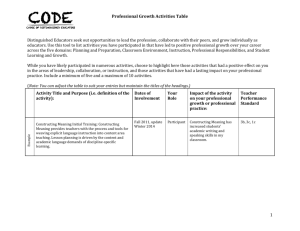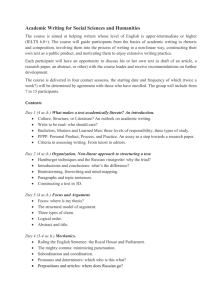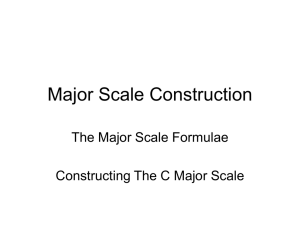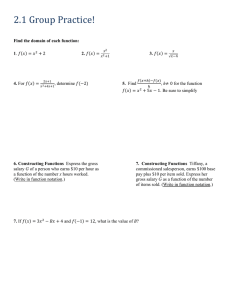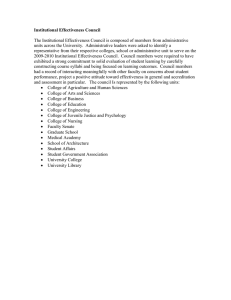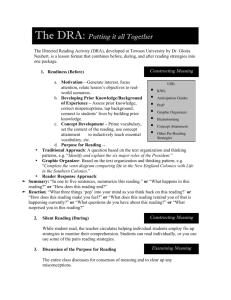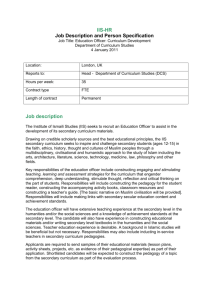Constructing A Logic ModeL
advertisement
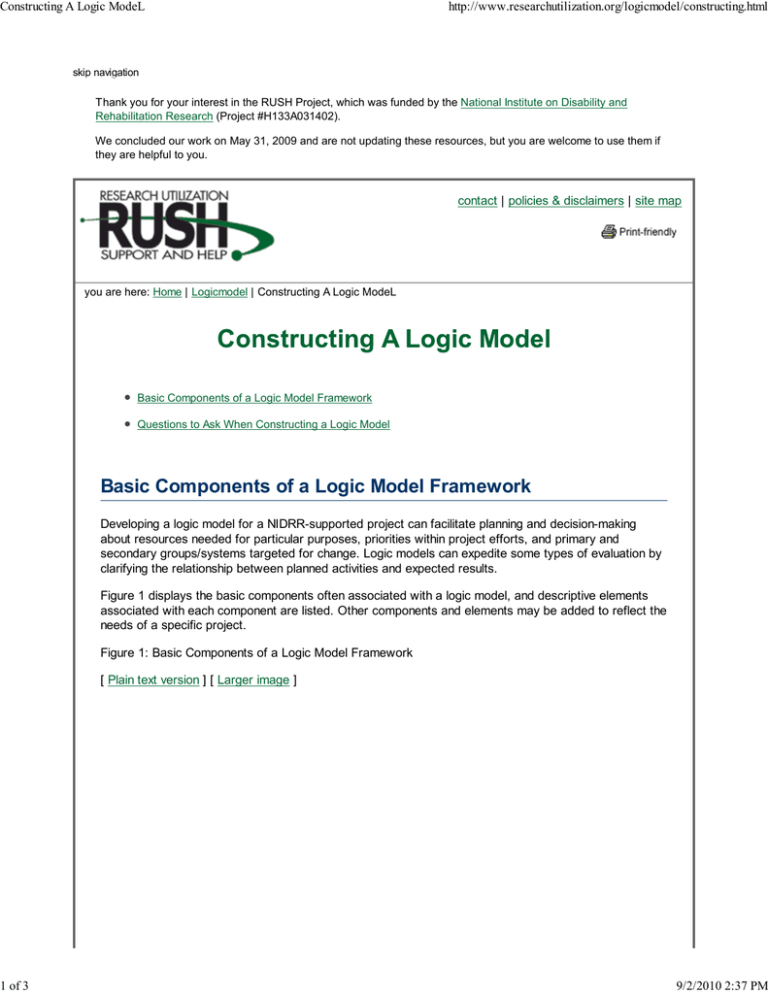
Constructing A Logic ModeL 1 of 3 http://www.researchutilization.org/logicmodel/constructing.html skip navigation Thank you for your interest in the RUSH Project, which was funded by the National Institute on Disability and Rehabilitation Research (Project #H133A031402). We concluded our work on May 31, 2009 and are not updating these resources, but you are welcome to use them if they are helpful to you. contact | policies & disclaimers | site map you are here: Home | Logicmodel | Constructing A Logic ModeL Basic Components of a Logic Model Framework Questions to Ask When Constructing a Logic Model Basic Components of a Logic Model Framework Developing a logic model for a NIDRR-supported project can facilitate planning and decision-making about resources needed for particular purposes, priorities within project efforts, and primary and secondary groups/systems targeted for change. Logic models can expedite some types of evaluation by clarifying the relationship between planned activities and expected results. Figure 1 displays the basic components often associated with a logic model, and descriptive elements associated with each component are listed. Other components and elements may be added to reflect the needs of a specific project. Figure 1: Basic Components of a Logic Model Framework [ Plain text version ] [ Larger image ] 9/2/2010 2:37 PM Constructing A Logic ModeL 2 of 3 http://www.researchutilization.org/logicmodel/constructing.html Based on information adapted from Program Evaluation: Strategies for Assessing How Information Dissemination Contributes to Agency Goals (GAO, 2002). http://www.gao.gov/new.items/d02923.pdf Questions to Ask When Constructing a Logic Model Logic models may vary as widely as the projects they represent. Our suggestions for NIDRR grantees present a relatively simple and straightforward logic model outline defined by seven basic elements. Questions are offered to suggest what key information is associated with each element: 1. Purpose or Situation What is the overall goal of your project work? Why is this important? 2. Resources or Inputs What supports do you have as a result of your NIDRR grant project, other contributing agencies, and your host organization's support that enable you to perform your proposed project? 3. Activities What actions, processes, events, services, products, technologies, or other elements will be used to implement your project? Will your activities be exclusively offered to a specific targeted audience or members of a specific target system? Will your activities be organized or “phased” in a particular manner? 4. Results or Outputs What direct services, products, or research-specific materials will be developed by the project staff or its associates? 9/2/2010 2:37 PM Constructing A Logic ModeL 3 of 3 http://www.researchutilization.org/logicmodel/constructing.html 5. Short-term Outcomes What changes or improvements in the identified target system will have occurred under the direct influence of project activities? What changes or improvements in learning, awareness, knowledge, and attitudes will have occurred? 6. Mid-term Outcomes What expected or actual changes or improvements in the identified target system will have occurred in part as a result of the use or adoption of program outputs? What changes in behaviors, actions, decisions, and policies will have taken place in the identified target system in response to short-term outcomes? 7. Long-Term Outcomes What changes would you expect to occur in overall conditions experienced generally by society from your project work and related efforts? What changes in universal environments or social policies would be expected to occur? Sources U. S. Government Accounting Office (GAO). (2002). Program evaluation: Strategies for assessing how information dissemination contributes to agency goals (Report # GAO-02-923). Washington: Author. Retrieved on August 2, 2004: http://www.gao.gov/cgi-bin/getrpt?GAO-02-923 NIDRR Project Number: H133A031402 Last Updated: Wednesday, 07 October 2009 at 01:41 PM. Contents © 2008 SEDL 4700 Mueller Blvd. - Austin, Texas 78723 Voice/Text Telephone: 512-476-6861 Fax: 512-476-2286 9/2/2010 2:37 PM
